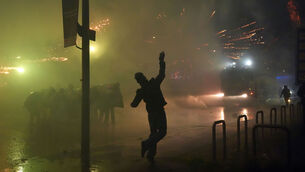World leaders 'ignored UN climate change target'
The United Nations’ leading climate change expert said Group of Eight nations had “clearly ignored” taking any concrete action to accomplish his panel’s new goal of limiting climate change.
Rajendra Pachauri, chairman of the UN Intergovernmental Panel on Climate Change, praised the G8 summit in Italy earlier this month for taking “a big step forward” by agreeing to limit the planet’s average temperature rise to 2C above levels recorded 150 years ago.














